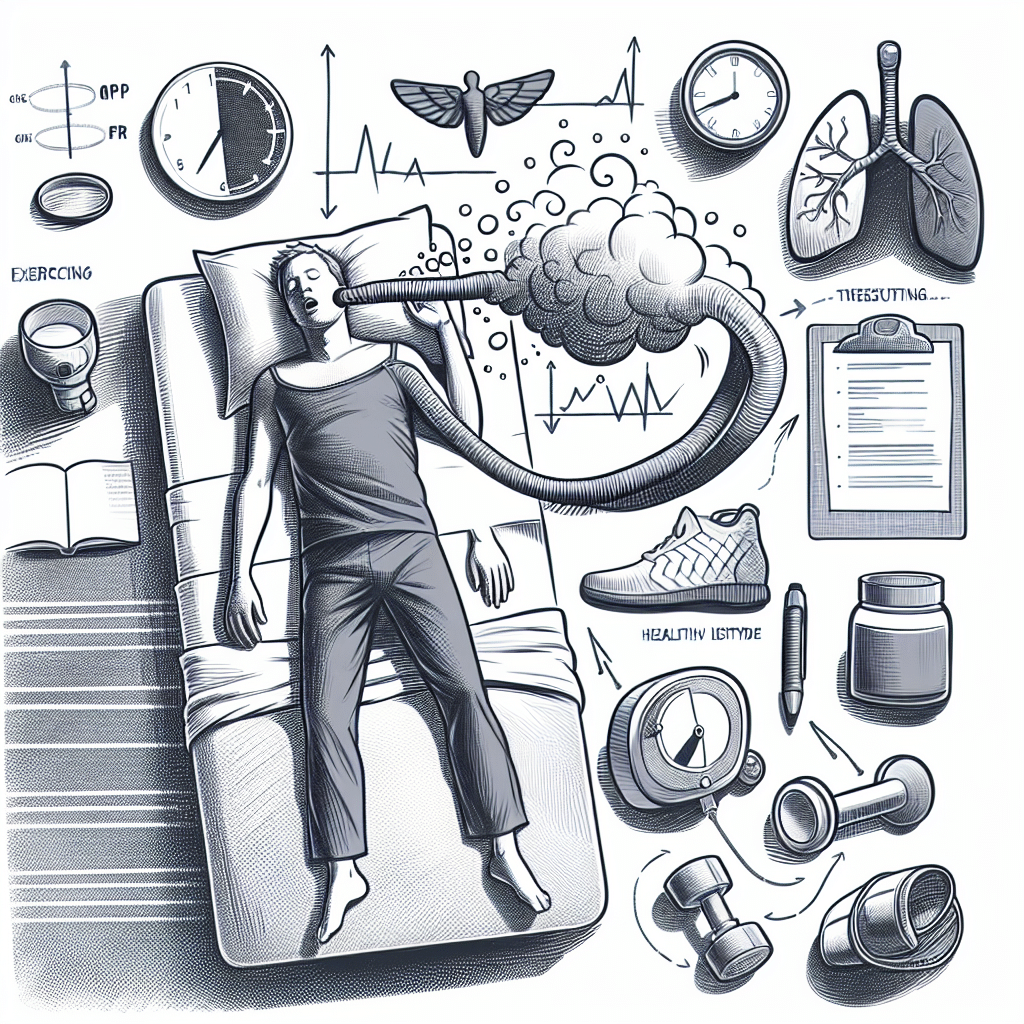Understanding Sleep Apnea
What is Sleep Apnea?
Sleep apnea is a serious sleep disorder characterized by interruptions in breathing during sleep. It can manifest in different forms, with obstructive sleep apnea (OSA) being the most prevalent. OSA occurs when muscles in the throat relax excessively during sleep, leading to airway blockages and disrupted sleep patterns.
Recognize Symptoms
Identifying Symptoms
Common symptoms of sleep apnea include:
- Loud snoring
- Choking or gasping during sleep
- Excessive daytime sleepiness
- Morning headaches
- Difficulty concentrating
- Irritability or mood swings
If you suspect you have sleep apnea, it is crucial to consult a healthcare professional for diagnosis and treatment.
Treatment Options
Traditional Treatments
-
CPAP Therapy: Continuous Positive Airway Pressure (CPAP) machines are widely used for managing sleep apnea. They maintain open airways by delivering a steady stream of air through a mask.
-
Dental Appliances: Custom-made mouthpieces can help prevent airway obstruction by repositioning the jaw and tongue.
-
Positional Therapy: Many people experience sleep apnea primarily when sleeping on their backs. Training yourself to sleep on your side through the use of special pillows or devices can be effective.
-
Surgery: In severe cases, surgical options may be considered, including the removal of excess tissue from the throat or repositioning the jaw to create a wider airway.
Alternative Therapies
-
Weight Management: Excess weight can significantly exacerbate sleep apnea by contributing to airway obstruction. Aim to maintain a healthy weight through balanced nutrition and regular physical activity.
-
Oral Health: Regular dental check-ups can aid in identifying potential issues related to oral appliances, ensuring they fit correctly, and providing comfort during sleep.
Lifestyle Changes
Daily Habits
-
Create a Sleep Schedule: Try to maintain a consistent sleep pattern by going to bed and waking up at the same time daily. This can enhance the quality of sleep.
-
Limit Caffeine and Alcohol: Stimulants and depressants can interfere with sleep quality. Limit their intake, especially in the hours leading up to bedtime.
-
Avoid Heavy Meals Before Bed: Eating late can lead to discomfort and negatively impact sleep quality. Aim to have your last meal at least two to three hours before sleep.
Environment Optimization
Bedroom Setup
-
Invest in Quality Sleep Gear: Choose a supportive mattress and pillow that suits your sleep position, contributing to better rest and reduced apnea severity.
-
Manage Noise and Light: Use white noise machines or earplugs to mask disruptive sounds. Blackout curtains can help keep the room dark, creating an ideal sleep environment.
-
Climate Control: Ensure your bedroom is at a comfortable temperature; too hot or too cold can disrupt sleep. Aim for a cool, comfortable ambiance.
Stress Management
Techniques for Relaxation
-
Mindfulness and Meditation: Engaging in mindfulness practices can reduce anxiety, promoting relaxation before bedtime. Try guided meditations or mindfulness apps.
-
Deep Breathing Exercises: Practicing deep breathing can help reduce stress and prepare your body for restful sleep. Focus on taking slow, deep breaths for several minutes before bed.
-
Yoga and Stretching: Incorporating light yoga or stretching into your evening routine can help relieve tension in the body, promoting relaxation and improving overall sleep quality.
Support Systems
Building a Support Network
-
Educate Family and Friends: Sharing information about sleep apnea with loved ones can foster understanding and support as you navigate the condition.
-
Join Support Groups: Connecting with others who have sleep apnea can provide valuable insights and emotional support. Look for local or online groups focusing on sleep health.
Monitor Progress
Tracking Symptoms
-
Keep a Sleep Diary: Document your sleep patterns, daily habits, and any symptoms you experience. This information can be beneficial for discussions with your healthcare provider.
-
Regular Follow-ups: Schedule periodic appointments with your doctor to monitor your condition and adjust treatments as necessary.
Advanced Treatment Options
Emerging Therapies
-
Adaptive Servo-Ventilation (ASV): This technology is a newer approach to treating complex sleep apnea and may be suitable for certain patients who do not respond to traditional CPAP therapy.
-
Hypoglossal Nerve Stimulation: For patients with moderate to severe obstructive sleep apnea, this surgical option involves implanting a device that stimulates the hypoglossal nerve to prevent airway collapse during sleep.
Nutrition for Better Sleep
Dietary Choices
-
Incorporate Omega-3 Fatty Acids: Foods rich in omega-3s, such as salmon and walnuts, may help reduce inflammation, potentially alleviating sleep apnea symptoms.
-
Address Food Sensitivities: Identify any food allergies or intolerances that may be affecting your sleep quality. Common culprits include dairy and gluten, so consider an elimination diet under professional guidance.
-
Stay Hydrated: Proper hydration is vital for overall health. However, avoid excessive fluids close to bedtime to minimize nighttime trips to the bathroom.
Technology and Sleep Apnea
Wearable Devices
-
Sleep Trackers: Consider using sleep-tracking devices to monitor your sleep habits, identifying patterns that may require attention.
-
Mobile Apps: Various apps provide guided breathing exercises, relaxation music, and other tools to enhance sleep quality.
Maintain Open Communication
With Healthcare Providers
-
Discuss Symptoms Effectively: Be open about your experiences, including how treatments affect your daily life. This information is crucial for tailoring your treatment plan.
-
Explore Research Studies: Inquire about participation in clinical trials for new treatments, which can provide access to cutting-edge therapy options.
Understanding Long-term Management
Consistency is Key
Long-term management of sleep apnea involves continuously adhering to therapy recommendations, making lifestyle modifications, and regularly monitoring progress. Staying proactive in your health journey is vital for reducing the symptoms of sleep apnea and improving your quality of life.
By combining medical treatment with lifestyle adjustments and ongoing support, individuals living with sleep apnea can enhance their quality of sleep, manage symptoms effectively, and lead healthier, more fulfilling lives.
